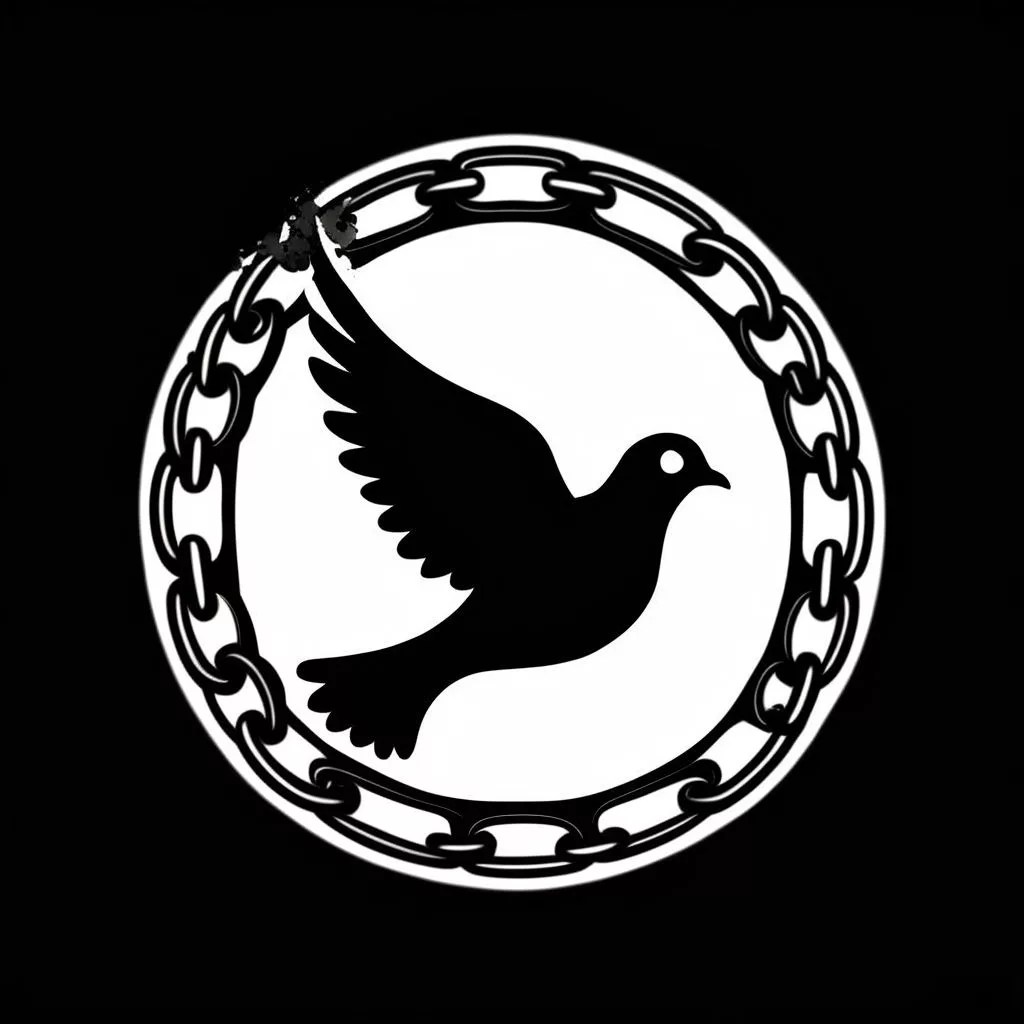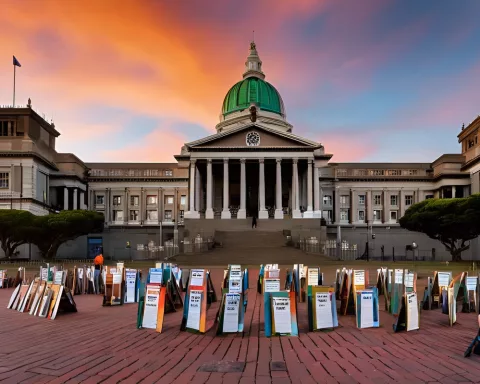The Sharpeville massacre on March 21, 1960, was a shocking event where police killed 79 peaceful protesters fighting against unfair laws in South Africa. This tragedy sparked a strong movement for freedom and led to the establishment of Human Rights Day, a day to remember those who sacrificed for justice. Sharpeville symbolizes the fight against apartheid and inspires South Africans to protect everyone’s rights today. The legacy of that day reminds us how important it is to stand up for equality and to ensure a better future for all.
What is the significance of the Sharpeville massacre in South African history?
The Sharpeville massacre on March 21, 1960, is a pivotal moment in South African history, symbolizing the brutal oppression of apartheid. It galvanized resistance movements, led to the declaration of Human Rights Day, and underscored the importance of safeguarding the rights and freedoms of all South Africans.
The Fateful Day of March 21, 1960
March 21, 1960, marks a watershed moment in South African history, a day that fortifies the collective memory of the nation. On this significant day, the peaceful enclave of Sharpeville became the site of a harrowing and transformative event. Seventy-nine people lost their lives, and 180 were injured when police unleashed gunfire on a peaceful protest against the oppressive Pass laws. This tragedy became a powerful symbol of ordinary South Africans standing up for their rights and has since been deeply embedded in the historical consciousness of the nation. Today, this date is commemorated as Human Rights Day, serving as a solemn reminder of the sacrifices made for the freedoms South Africans now cherish.
The Origins of Oppression
To understand the significance of Human Rights Day, one must delve into the roots of apartheid, which took shape when the Nationalist Party came to power in 1948. The new regime wasted no time in implementing a series of segregationist laws aimed at controlling the movement of black South Africans in urban areas. The Native Laws Amendment Act of 1952 was particularly draconian, restricting black individuals’ right to live permanently in towns and cities unless they had a permit from local authorities. Once arriving in urban areas, black South Africans had just 72 hours to secure a permit to seek employment, thereby severely curtailing their freedom.
Central to this web of regulations was the Reference Book, commonly referred to as the Pass. This document included a photograph, the individual’s place of origin, employment history, tax records, and any encounters with the police. It effectively turned black South Africans’ lives into open books, subject to perpetual scrutiny and control. The 1956 march to the Union Buildings in Pretoria by 20,000 women from various backgrounds was a landmark moment of resistance against these Pass laws. Their anthem, “wathint abafazi, wathint’ imbokodo” (you strike a woman, you strike a rock), encapsulated the unyielding spirit of resistance against the oppressive system.
The Role of the Pan Africanist Congress
The Pan Africanist Congress (PAC) was instrumental in the events leading up to the fateful day of March 21, 1960. The PAC organized an anti-Pass campaign, urging black men to gather in Sharpeville without their passes and present themselves for arrest in a planned act of civil disobedience. This demonstration was meant to draw attention to the injustices faced by black South Africans and to demand their rights. However, the situation escalated when police, tasked with dispersing the crowd, responded with lethal force. The massacre that ensued not only shocked the world but also galvanized international opposition to apartheid, while intensifying domestic resistance.
The Sharpeville massacre marked a turning point, signaling the brutal lengths to which the apartheid regime would go to maintain its grip on power. Despite the subsequent bans on numerous black political movements by the Nationalist government, this tragic event ignited a more resolute and widespread resistance movement. Organizations like the African National Congress (ANC) and the PAC continued their struggle underground, laying the groundwork for future liberation efforts.
The Path to Democracy
The Sharpeville massacre was a pivotal event that foreshadowed the eventual dismantling of apartheid. It underscored the regime’s brutality while simultaneously sparking a more determined and extensive resistance movement. In the years that followed, underground organizations like the ANC and the PAC continued their fight for freedom and equality. This relentless struggle eventually led to South Africa’s first democratic elections, culminating in Nelson Mandela’s election as President.
On March 21, Human Rights Day was officially declared a public holiday, inviting all South Africans to reflect on their hard-won rights. This day serves as a poignant reminder of the importance of safeguarding these rights for every individual, regardless of race, gender, religion, sexual orientation, or nationality. The day also emphasizes the ongoing commitment to addressing issues such as human trafficking, child labor, forced labor, and violence against women, children, and the elderly. South African society remains dedicated to protecting the rights of all, particularly vulnerable groups, as echoed in the call from Parliament.
A Day of Reflection and Commitment
Human Rights Day serves as a clarion call for vigilance against abuses like human trafficking, child labor, forced labor, and violence against women, children, and the elderly. South African society remains committed to addressing these issues, echoing the Parliament’s call to protect the rights of all, particularly vulnerable groups. This ongoing commitment to human rights is not merely a reflection of past struggles but a continuous effort to ensure a just and equitable society.
In commemorating Human Rights Day, South Africans honor the legacy of those who fought and perished for freedom. The day is not only a reminder of the past but also a call to action, urging current and future generations to uphold and protect the rights that were so dearly won. The spirit of Sharpeville, with its blend of tragedy and triumph, continues to inspire a nation dedicated to the principles of equality and justice for all.
The Enduring Spirit of Sharpeville
Human Rights Day serves as a clarion call for vigilance against abuses like human trafficking, child labor, forced labor, and violence against women, children, and the elderly. South African society remains committed to addressing these issues, echoing the Parliament’s call to protect the rights of all, particularly vulnerable groups. This ongoing commitment to human rights is not merely a reflection of past struggles but a continuous effort to ensure a just and equitable society.
In commemorating Human Rights Day, South Africans honor the legacy of those who fought and perished for freedom. The day is not only a reminder of the past but also a call to action, urging current and future generations to uphold and protect the rights that were so dearly won. The spirit of Sharpeville, with its blend of tragedy and triumph, continues to inspire a nation dedicated to the principles of equality and justice for all.
Human Rights Day is a solemn occasion to reflect on the sacrifices made for the freedoms enjoyed today. It is also a call to remain vigilant in protecting these rights, ensuring that future generations inherit a society built on the principles of equality and justice. The tragedy of Sharpeville serves as a powerful reminder of the cost of freedom and the enduring spirit of resistance that defines South Africa.
“`markdown
FAQ: The Legacy of Sharpeville and Human Rights Day
What was the Sharpeville massacre?
The Sharpeville massacre occurred on March 21, 1960, when police opened fire on a peaceful protest against the oppressive Pass laws in South Africa, resulting in the deaths of 79 peaceful protesters and injuring 180 others. This event is a pivotal moment in the history of South Africa and symbolizes the brutal oppression of apartheid.
Why is Human Rights Day celebrated in South Africa?
Human Rights Day is celebrated on March 21 each year to commemorate the Sharpeville massacre and honor those who sacrificed their lives in the fight for justice and equality. It serves as a reminder of the importance of safeguarding human rights for all individuals, regardless of race, gender, or background.
How did the Sharpeville massacre impact the anti-apartheid movement?
The Sharpeville massacre galvanized both domestic and international opposition to apartheid, leading to a more determined and widespread resistance movement. Organizations like the African National Congress (ANC) and the Pan Africanist Congress (PAC) intensified their efforts, laying the groundwork for future liberation movements that ultimately led to the dismantling of apartheid.
What were the oppressive conditions leading to the Sharpeville protest?
The protest was primarily against the Pass laws, which severely restricted the movement of black South Africans in urban areas. The laws required black individuals to carry passbooks and restricted their right to live and work in towns and cities. This legislation exemplified the systemic racism and segregationist policies of the apartheid regime.
How is the legacy of Sharpeville relevant in today’s South Africa?
The legacy of Sharpeville continues to inspire South Africans to advocate for equality and human rights. Human Rights Day serves as a call to action to remain vigilant against human rights abuses such as child labor, trafficking, and violence against vulnerable populations. It reminds current and future generations of the importance of protecting the hard-won rights and freedoms of all individuals.
What ongoing issues does Human Rights Day address?
Human Rights Day not only commemorates the past but also highlights ongoing issues such as human trafficking, child labor, forced labor, and violence against women and children. It emphasizes the need for continuous efforts to protect the rights of all South Africans, particularly marginalized groups, ensuring a just and equitable society.
“`












